World Politics Review contributors John Nagl of the Center for a New American Security and Brian Katulis of the Center for American Progress discuss the conflict of visions for the way forward in Afghanistan with NewsHour’s Ray Suarez. Katulis and Nagl discuss recent discouraging statements by Afghan President Hamid Karzai and how a competing vision for the future of Afghanistan could affect allied forces’ operation there.
Middle East & North Africa Archive
Free Newsletter

While the world doesn’t yet face a food crisis on par with the summer of 2008, it’s clear that the drought currently affecting the Black Sea trio of Russia, Ukraine and Kazakhstan — all big-time global exporters of wheat and barley — has suddenly made food inflation a primary threat to the somewhat fragile and decidedly uneven global economic recovery. At the very least, it reminds us just how tight global food markets are, due to the contradictory combination of rising middle-class demand and the enduring commitment by brittle governments around the world to keep prices low — at whatever […]
American economist, political writer, and commentator, Thomas Sowell discusses what he thinks would be the outcome of a nuclear Iran in a Hoover Institution interview. Sowell says the United States needs to take the Iran nuclear threat more seriously, seeking out military options should diplomacy fail. He continues that unlike in the Cold War where Russia feared retaliation should it launch nuclear weapons, leaders of the Islamic Republic of Iran are more concerned with waging a holy war than with the consequences.
As Israel and the Palestinian Authority prepare to engage in the first direct peace negotiations in almost two years, NewsHour talks to David Makovsky, senior fellow at the Washington Institute and co-author of the book “Myths, Illusions and Peace,” and Ghaith Al-Omari, advocacy director at the American Task Force on Palestine and a fellow at the Center for American Progress.
As combat troops withdraw from Iraq, controversial private security firms are coming in to fill the security void, according to the U.S. State Department. Officials say that contractors will be subject to the Afghan legal system this time around, however skeptics remain following the now infamous Blackwater scandal of 2007.
Stuart Bowen, U.S. Special Inspector General for Iraq, says the system that pays contractors for work in Afghanistan is largely to blame for poor work quality, unfinished projects, and gross overspending. The U.S. has spent at least $700 billion on the Iraq war over the last seven years and is expected to continue spending large amounts of tax payer dollars in that country in development, now that combat troops have been withdrawn.
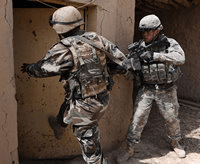
World Politics Review is on a publishing hiatus through Aug. 30. But during this time, we’ll be opening up some of our subscription-only content to non-subscribers. Today we feature an article that was part of our May 4, 2010, feature, “Leaving Iraq: What Comes Next?“ In “Debating Obama’s Withdrawal Timeline,” Gregg Carlstrom wrote that despite President Barack Obama’s insistence on sticking to his withdrawal timetable in Iraq, the debate in Washington over the advisability of that course continued. Even today, as Operation Iraqi Freedom officially ends and the last combat troops leave Iraq, the debate goes on. Carlstrom’s article provides […]
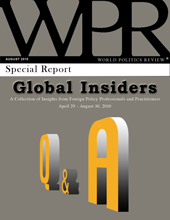
Global Insider is an ongoing World Politics Review interview series that examines developing trends in geopolitics. From maritime disputes and arms sales, to free trade agreements and evolving bilateral relations, Global Insider explores the foundations and implications of new developments in international affairs through the voices of preeminent experts that hail from government, academia and research institutions. Global Insider is published multiple times per week at worldpoliticsreview.com/trend-lines. On this page, and in a pdf document that is available for download by subscribers in our document center, we have collected every Global Insider interview conducted since the series began in April […]
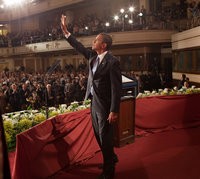
At the beginning of this year, I made the following observation: The novelty of the Obama presidency has worn off. What remains will be a long, hard slog of rebuilding America’s global position. And while the fancy rhetoric of 2009 convinced many to give Washington a second chance, 2010 needs to be the year of delivery. If not, Obama will discover, as Bush did before him, that America cannot lead if others will not follow. More than halfway through 2010, the Obama administration has made some progress on a number of the foreign policy challenges facing the United States. There […]
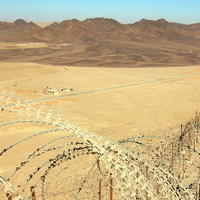
A recent rocket attack on the twin Red Sea resorts of Eilat in Israel and Aqaba in Jordan raises the specter of renewed Bedouin violence in Egypt’s Sinai peninsula, where security forces are struggling to fight crime, illegal immigration and terrorist threats, as well as to protect oil and gas pipelines. In the wake of the attacks, an Egyptian security operation aimed at uprooting militant Palestinian and Bedouin groups as well as jihadist elements confirmed Israeli and Jordanian claims that the rockets had been launched from Sinai. It was the second such attack in four months. Security forces discovered evidence […]
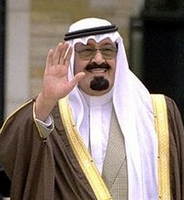
The indefinite postponement of Saudi King Abdullah’s scheduled visit to the French capital last month does not bode well for France’s efforts to considerably raise its profile in the Gulf Cooperation Council, and it could well dampen the supposed gains made by French President Nicolas Sarkozy’s two visits to the desert kingdom last year. Reports suggest that King Abdullah, who was to open an exhibition of Saudi antiquities at the Louvre museum in Paris during his proposed July 12 visit, canceled his trip in the wake of a controversy generated by an article that appeared on the Web site of […]
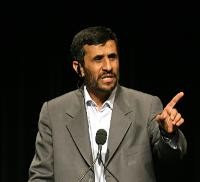
After the Obama administration shifted gears in its strategy to stop Iran’s nuclear program, moving from diplomacy to sanctions, a sense of skepticism about its chances for success emanated from all corners. From top American generals saying they did not think the sanctions would work, to a wide variety of politicians, analysts and journalists — including your humble correspondent — a growing consensus emerged that the weak United Nations sanctions obtained by Washington with enormous difficulties would simply fail to deter Iran’s defiant push in pursuit of nuclear know-how and, most likely, nuclear weapons. Since the latest resolution’s passage, however, […]
Syrian forces detained 400 people last month in connection with the separatist Kurdistan Workers’ Party (PKK). Meanwhile Syria, Turkey and Iran have seemingly stepped up their coordinated response to the militant group. In an e-mail interview, Aliza Marcus, a writer based in Washington, and the author of “Blood and Belief,” a book on the PKK, explains Syria’s,Turkey’s, and Iran’s fight against the militant group. WPR: Historically, what has been the level of cooperation between Turkey, Syria and Iran in fighting Iraq-based PKK and PJAK militants? Aliza Marcus: Turkey, Iran and Syria historically have been at odds when it comes to […]

One reason why President Obama and other very senior U.S. officials personally met with a select group of leading columnists and opinion writers at the White House last week was to highlight the often overlooked progress his administration has achieved in securing comprehensive European support for the U.S. policy toward Iran. Although it is too early to judge the effects of the new sanctions adopted by the EU and the United States independently and collectively through the United Nations, we can begin to assess the administration’s multilateral diplomacy. At least in the case of Europe, that diplomacy seems to be […]
Writer and scholar Reza Aslan discusses President Barack Obama’s Iran strategy at a United Nations Alliance of Civilizations debate entitled “The Future of Western Relations with the Muslim World.” Aslan says he agrees with Obama’s initial approach to an unstable Iran, however, a shift in Tehran has caused the once solid policy to be on uneven ground.
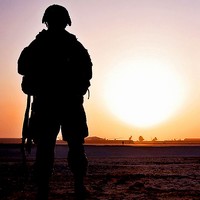
This week, President Barack Obama reaffirmed U.S. plans to end its combat mission in Iraq at the end of August, and to pull out the 50,000 troops that will remain past that date in a supporting, advisory role by the end of 2011. The president emphatically stated that “we will maintain a transitional force until we remove all our troops from Iraq by the end of next year.” It’s not unreasonable to think of Iraq as the new Lebanon — a fractious and not-so-united nation-state unable to form and sustain coherent governments, and still tottering near the precipice of a […]
